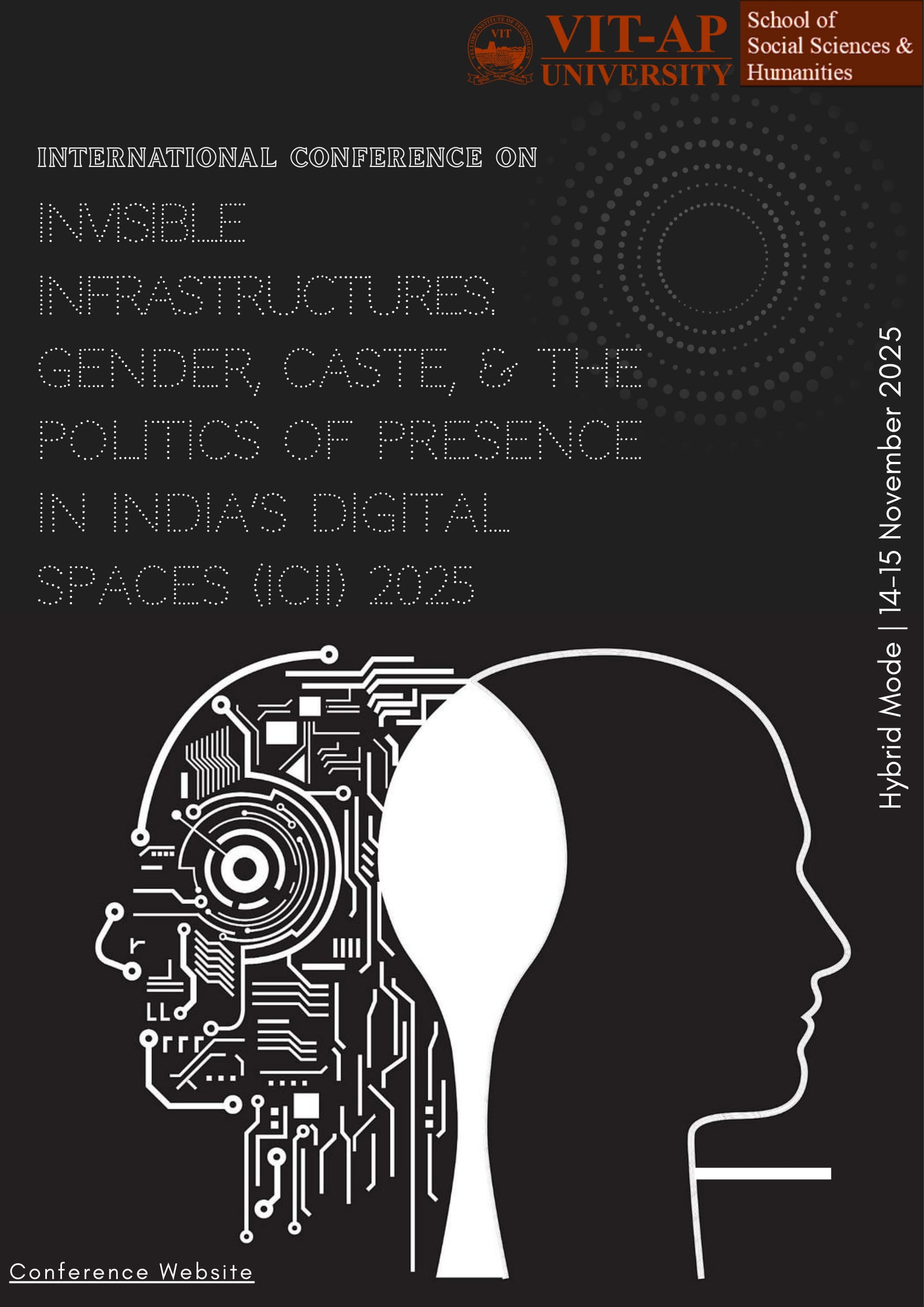-
Description
International Conference on Invisible Infrastructures: Gender, Caste and The Politics of Presence in India’s Digital Spaces (ICII 2025)
November 14 | 9:00AM
VIT-AP
-
Description
Title: International Conference on Invisible Infrastructures: Gender, Caste and The Politics of Presence in India’s Digital Spaces (ICII 2025)
Description: The International Conference on Invisible Infrastructures: Gender, Caste, and the Politics of Presence in India’s Digital Spaces (ICII), seeks to convene interdisciplinary voices, scholars, academicians, artists, technologists, and activists to interrogate how power operates in digital spaces not only through spectacular forms of violence, but also through subtle, everyday mechanisms of control and exclusion. While centred on the Indian context, the discussions will situate these issues within broader Global South debates on digital justice, feminist epistemologies, and decolonial futures. India’s digital sphere is often celebrated as a site of democratised access, creative expression, and political mobilisation. However, beneath this narrative lies a complex terrain where gendered, caste-based, and classed hierarchies are reproduced and reshaped through everyday interactions, algorithmic architectures, and platform governance. While scholarship has addressed online harassment, representation, and gendered violence, there is a pressing need to focus on the less visible forces shaping digital life, particularly micro-surveillance, caste capital, and the emotional labour of online presence. Micro-surveillance—enacted by family members, employers, community elders, or peers—blurs boundaries between public and private, limiting autonomy for women, queer persons, and gender-diverse communities (Udupa, 2018). Caste capital further complicates these dynamics by influencing who is granted legitimacy, visibility, and safety online (Nagaraj & Anuradha, 2020). Digital economies, from gig work to influencer culture, demand sustained emotional labour, especially from marginalized genders. This includes constant curation of self-presentation to manage reputations, navigate casteist-gendered scrutiny, and maintain community solidarity in the face of trolling, shadow banning, and de-platforming (Ravindran, 2021; Sharma & Das, 2023). The psychological toll of such hyper-visibility remains underexplored, particularly in contexts where state surveillance, data colonialism, and corporate extractivism intersect (Couldry & Mejias, 2019).
Select Option
Please select the option you want to register
